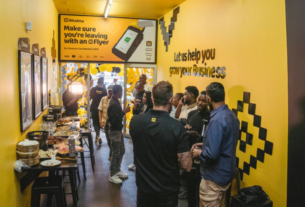South Africa faces a critical challenge in integrating adults who have not completed high school into the workforce. The 2022 Census indicates that 50% of the adult population in South Africa has not completed Grade 12, a staggering statistic that highlights the urgency of finding viable pathways to employment for these individuals.
Rajan Naidoo, the Managing Director of EduPower Skills Academy believes that learnerships present a promising solution. Delivering a combination of theoretical learning with practical work experience, learnerships are a proven alternative route for education and skills development.
“Learnerships are designed to be inclusive as they offer opportunities to those left behind by traditional education systems,” says Naidoo. “They enable individuals to gain meaningful work experience and develop skills that are in demand in the job market.”
The Need for Learnerships
One of the significant advantages of learnerships is their accessibility. Unlike most post-school higher education programmes that require a minimum of Grade 12, learnerships cater to a broader range of educational backgrounds. For instance, many learnerships accept applicants with literacy levels equivalent to Grades 6 or 7.
“This inclusivity is particularly beneficial for people with disabilities, who often face additional barriers in completing their education,” he adds. “Learnerships are a gateway to office-based environments and jobs, which are also generally more accommodating for individuals with disabilities.”
Incentives for Corporates
Fortunately, learnerships are supported by a robust legislative framework. The Skills Development Act and various SETA (Sector Education and Training Authority) initiatives provide funding for these programmes, ensuring that financial constraints do not hinder access. Companies participating in learnerships can also benefit from tax incentives under Section 12H of the SARS (South African Revenue Service) regulations, making it a win-win situation for employers and learners.
Additionally, under Broad-Based Black Economic Empowerment (B-BBEE), companies are also encouraged to participate in Skills Development through learnerships, further promoting inclusive economic growth. “These incentives are vital for creating learnership opportunities, but the harsh truth is that there are not enough learnerships open to people without a Grade 12,” Naidoo asserts. “We see this at EduPower when we advertise new learnerships as at least 40% of our applicants will not have completed high school, demonstrating the high demand for such programmes.”
Wide-Ranging Impact
The range of learnerships available for people who don’t have Grade 12 is vast and spans various industries and skill levels. Programmes such as the Adult Basic Education and Training (ABET) at NQF Level 1 focus on foundational literacy and numeracy, while others such as Business Practice NQF Level 1 or Garment Manufacturing NQF Level 2, offer specialised skills training. These programmes are generally not confined to specific sectors, allowing learners to find opportunities in fields ranging from customer service to manufacturing.
Naidoo does, however, emphasise that support for learners without a Grade 12 is a crucial aspect of successful learnerships. “At EduPower, we have found learners flourish with additional mentoring and ongoing support, enabling them to progress from basic to more advanced qualifications. This creates a pathway for continuous personal and professional development.”
Enabling a Better Future
The potential impact of expanding learnerships to more people who do not have a Grade 12 is immense. “It’s about utilising an untapped talent pool. By providing vocational training and upskilling through learnerships, we can address socio-economic challenges and reduce dependency on grants,” he adds.
Learnerships represent a key mechanism for integrating adults into the South African workforce, offering not just skills but hope and a pathway to a better future. As Naidoo aptly concludes: “Empowerment through accessible training initiatives is not just a slogan; it’s a reality that learnerships are making possible for many who previously lacked such opportunities.”





